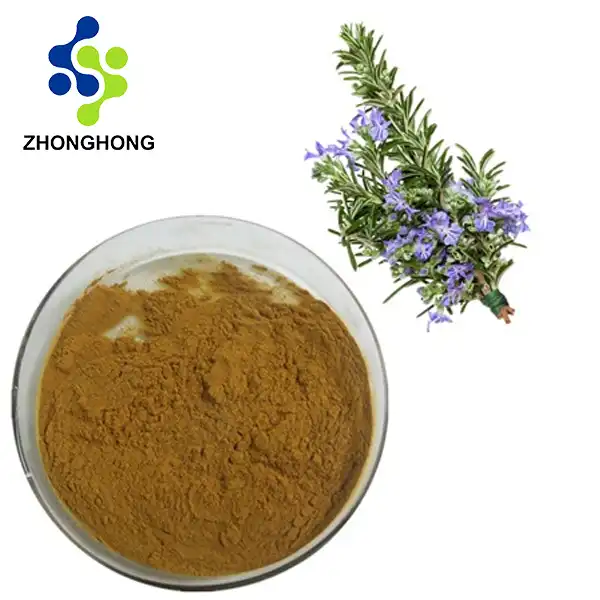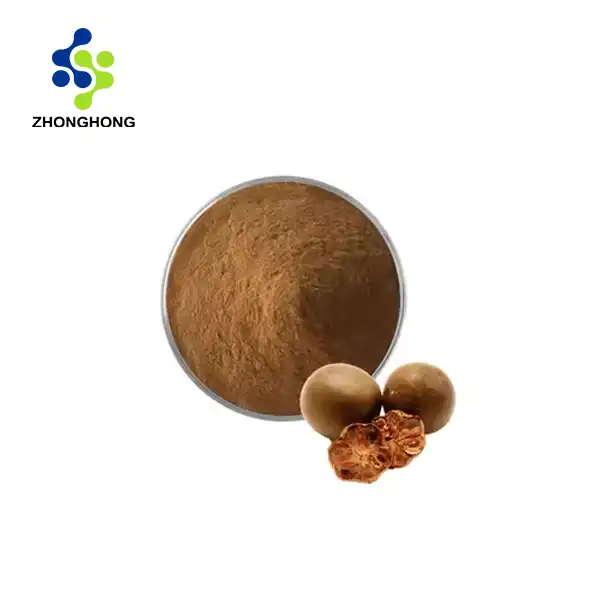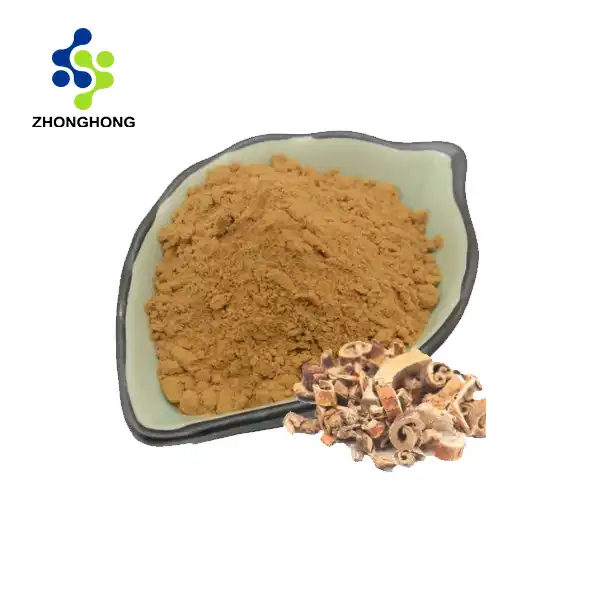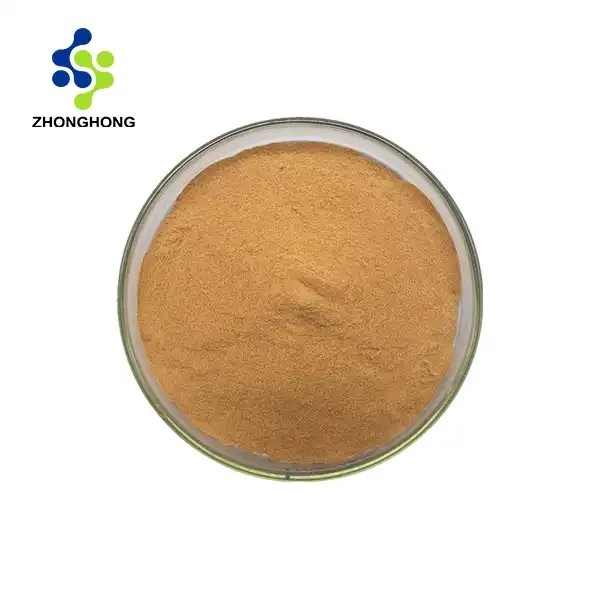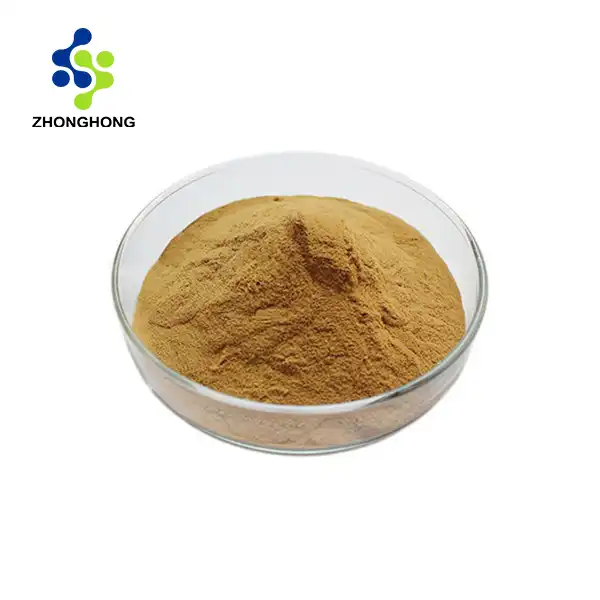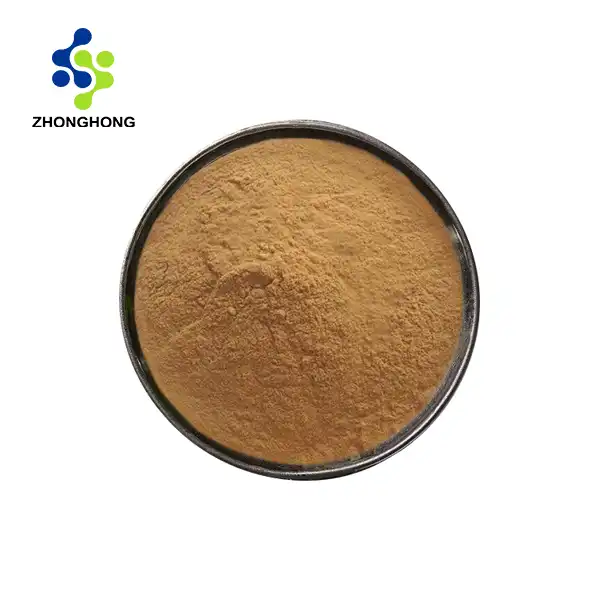Understanding Hops Extract and Its Composition
The Botanical Origin of Hops
Hops, scientifically known as Humulus lupulus, belong to the Cannabaceae family. These climbing plants are cultivated primarily for their female flowers, called cones or strobiles. The cones contain lupulin glands, which produce the resins and essential oils responsible for the characteristic bitterness, flavor, and aroma associated with hops. These compounds are the primary focus when creating hops extract powder.
Chemical Composition of Hops Extract
 Hops extract is a complex mixture of various bioactive compounds. The main components include alpha and beta acids, essential oils, and polyphenols. Alpha acids, such as humulone and its derivatives, contribute to the bitter taste, while beta acids like lupulone offer preservative properties. The essential oils, comprising myrcene, humulene, and caryophyllene, provide the distinctive aroma. Polyphenols, including xanthohumol and other flavonoids, contribute to the extract's antioxidant properties.
Hops extract is a complex mixture of various bioactive compounds. The main components include alpha and beta acids, essential oils, and polyphenols. Alpha acids, such as humulone and its derivatives, contribute to the bitter taste, while beta acids like lupulone offer preservative properties. The essential oils, comprising myrcene, humulene, and caryophyllene, provide the distinctive aroma. Polyphenols, including xanthohumol and other flavonoids, contribute to the extract's antioxidant properties.
Extraction Methods and Their Impact on Composition
The extraction process influences the final composition of hops extract powder. Common extraction methods include supercritical CO2 extraction, ethanol extraction, and water extraction. Each technique generates a slightly different collection of compounds, allowing companies to tailor the extract to individual requirements. Supercritical CO2 extraction, for example, is extremely effective in isolating essential oils and resins while leaving behind unwanted plant material. This method yields a high-purity extract free of potential gluten-containing contaminants.
Gluten in Food and Supplements: A Closer Look
Defining Gluten and Its Sources
Gluten is a kind of protein present in wheat, barley, and rye in particular. It acts as a binding agent in dough, adding elasticity and texture to baked foods. Gluten is typically harmless, although celiac disease and gluten sensitivity patients may have unpleasant responses. Gluten avoidance requires an understanding of its origins. Common gluten-containing foodstuffs include wheat flour, barley malt, rye bread, and many processed meals that employ these grains as additives or thickeners.
Gluten-Free Regulations and Certifications
Many nations have introduced gluten-free product labeling rules to safeguard people suffering from gluten-related diseases. For example, in the United States, the Food and Drug Administration (FDA) specifies that items labeled "gluten-free" contain fewer than 20 parts per million (ppm) of gluten, which is considered safe for the majority of celiac disease patients. Furthermore, some organizations provide gluten-free certifications, which require stringent testing and auditing methods to assure that goods meet or surpass these criteria. Obtaining such certificates might give piece of mind for gluten-intolerant consumers, especially for manufacturers of hop extract powder and related goods.
Cross-Contamination Concerns in Food Processing
Even if the components are gluten-free, cross-contamination during processing can introduce gluten into the finished product. This is a major problem in facilities that process both gluten-containing and gluten-free foods. Cross-contamination can occur due to shared equipment, airborne particles, or poor cleaning practices. Manufacturers of hops extract must follow careful cross-contamination measures, especially if the facility handles other gluten-containing components. This may need separate production lines, intensive cleaning methods, and regular testing to verify the quality of gluten-free items.
Hops Extract in Various Industries: Gluten Considerations
Brewing Industry: Hops and Beer Production
 In the brewing industry, hops are a fundamental ingredient, contributing bitterness, flavor, and aroma to beer. While hops themselves are gluten-free, most beers contain gluten from malted barley or wheat. However, the growing demand for gluten-free options has led to the development of beers made with gluten-free grains like sorghum or rice. In these cases, hops extract powder can be used without concern for introducing gluten. It's worth noting that some breweries use a process to remove gluten from traditional beers, but these may still contain trace amounts and are typically labeled as "gluten-reduced" rather than "gluten-free."
In the brewing industry, hops are a fundamental ingredient, contributing bitterness, flavor, and aroma to beer. While hops themselves are gluten-free, most beers contain gluten from malted barley or wheat. However, the growing demand for gluten-free options has led to the development of beers made with gluten-free grains like sorghum or rice. In these cases, hops extract powder can be used without concern for introducing gluten. It's worth noting that some breweries use a process to remove gluten from traditional beers, but these may still contain trace amounts and are typically labeled as "gluten-reduced" rather than "gluten-free."
Nutraceutical and Supplement Applications
Hops extract has gained popularity in the nutraceutical industry due to its potential health benefits. It's often included in supplements targeting sleep quality, menopausal symptoms, and digestive health. In this context, the gluten-free status of hops extract is particularly important, as many consumers of dietary supplements are health-conscious and may have dietary restrictions. Manufacturers in this sector typically prioritize gluten-free formulations and may seek certifications to appeal to a broader consumer base. When using hops extract powder in supplements, companies must ensure that all other ingredients and processing aids are also gluten-free to maintain the product's integrity.
Cosmetic and Personal Care Products
The cosmetic industry has also embraced hops extract for its potential skin benefits, including anti-inflammatory and antioxidant properties. While gluten in topical products is generally not a concern for most people with celiac disease or gluten sensitivity (as gluten cannot be absorbed through the skin), some individuals prefer to avoid gluten in all products as a precautionary measure. Cosmetic manufacturers using hops extract can capitalize on its natural gluten-free status to appeal to this market segment. However, they must still be vigilant about other ingredients in their formulations that could contain gluten derivatives, such as certain plant proteins or vitamin E sourced from wheat germ oil.
Conclusion
To summarize, pure hops extract is naturally gluten-free, making it a versatile product that may be utilized in a wide range of sectors that serve gluten-sensitive clients. However, appropriate handling, testing, and certification are essential for ensuring that the completed product is gluten-free. As the need for gluten-free solutions grows, hops extract emerges as a desirable component that combines functionality and dietary inclusion. Cross-contamination during processing or the addition of gluten-containing components to hops extract-based products may introduce gluten, despite the fact that pure hops extract is gluten-free. When ingesting goods containing hops extract, those with severe gluten sensitivity should carefully read the labels and seek out certified gluten-free solutions. If you want to get more information about this product, you can contact us at liaodaohai@gmail.com.
_1728976869676.webp)
